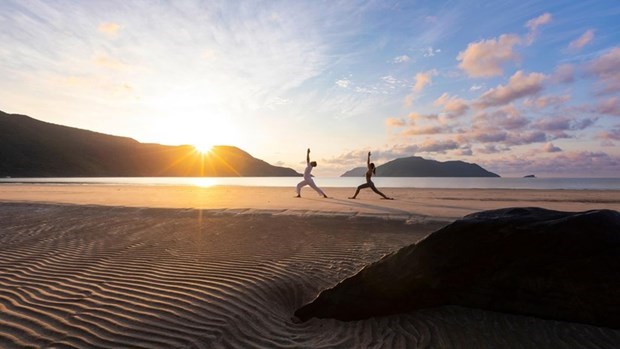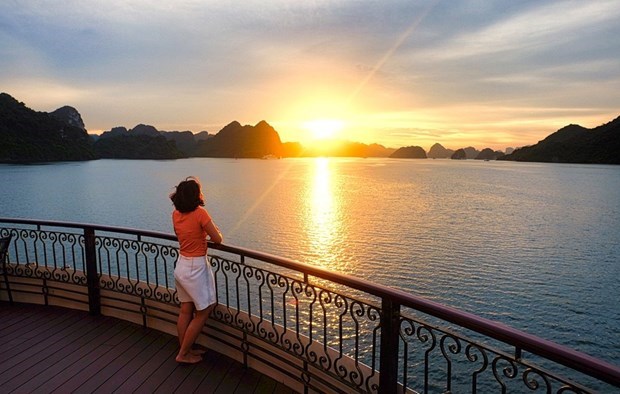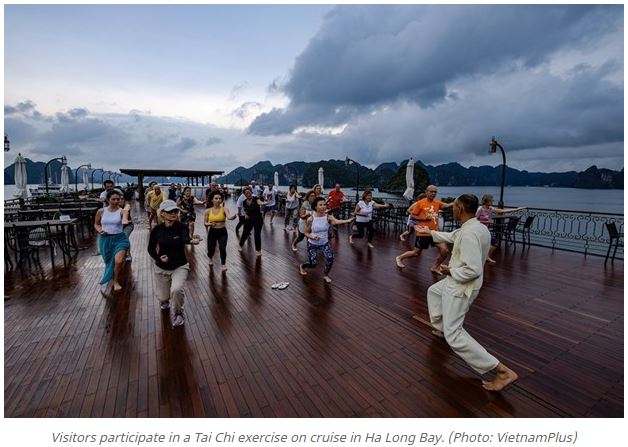Healthcare tourism – untapped potential in Vietnam
Medical tourism has emerged as a major trend around the world as the COVID-19 pandemic and environmental pollution have caused people to pay more attention to their health.
Particularly, experts said the post-COVID-19 era would be a booming period for all types of healthcare services.
This new kind of tourism has not been effectively exploited in Vietnam, despite the big number of destinations with potential for wellness tourism.
Wellness tourism has become popular in some countries including the US, India, Japan, the Republic of Korea, Singapore, China, Thailand and Indonesia.
“It is forecast that the global wellness tourism market will post a revenue of 919 billion USD in 2022,” tourism expert Nguyen Van Luu said.
Currently, this type of tourism is growing rapidly from North America to Europe and Asia-Pacific and will expand faster in the coming years, he added.
It is worth mentioning that over the past five years, Asia has led in both the number of visitors and revenue from healthcare tourism.
 |
|
Tourists practice yoga on the beach on Con Dao island. (Photo:VietnamPlus) |
Deputy Director of the Tourism Market Department, Vu Nam cited Yufuin, a rural village in Oita Prefecture of Japan as an example in exploiting local resources for health tourism.
With a natural area of about 1,800 hectares and a population of about 10,000 people, the village welcomed nearly 4.5 million visitors in 2019.
It is estimated that more than 12,000 visitors arrived at Yufuin per day on average, more than the population of the village. The income from tourism in 2019 of local people reached more than 16 billion JPY, equivalent to nearly 15 million USD.
“Yufuin can be said to be one of the most typical tourist destinations in exploiting hot mineral resources for the development of healthcare tourism not only in Japan but also around the world,” Nam said.
Commenting on this tourism trend, which has developed in the world but is still untapped in Vietnam, deputy head of the Vietnam National Administration of Tourism Nguyen Thi Thanh Huong said there will be a shift in the tourism trend in the future, especially long-term trips will no longer be mere sightseeing trips. It will be a combination of relaxation and the use of services to strengthen physical and mental health.
Huong said the main reason for wellness tourism to be ignored in Vietnam is a lack of comprehensive research on its potential as well as no specific orientations and policies for the development of this type of tourism.
Over recent years, many hot mineral springs have opened for tourists such as Quang Hanh (Quang Ninh province), My Lam (Tuyen Quang province) and Thanh Thuy (Phu Tho province) which offer Japanese-style healthcare tourism services with hot spring baths.
 |
|
A bright future lies ahead for Vietnamese tourism. (Photo: VietnamPlus) |
Before the COVID-19 pandemic erupted, about 350,000 foreigners came to Vietnam in 2018 for to have medical examinations and treatments, generating a turnover of 2 billion USD. Meanwhile, every year, about 40,000 Vietnamese people travel abroad for healthcare services in combination with tourism and spend billions of dollars. It showed that not only international visitors but also domestic travelers are potential customers of this type of tourism.
To meet the demand of tourists, some travel agencies have developed a wide range of tourist products associated with maintaining and promoting people’s health such as yoga on beach and massage therapy, offering a fresh experience for visitors.
Director of Thua Thien Hue Department of Tourism, Tran Huu Thuy Giang, said that this locality will study and soon issue policies and product orientations for tourism businesses to develop and put into operation healthcare tours.
“It is necessary to define this type of tourism a key type in the planning and development strategy of Vietnam’s tourism. The government needs to have policies and plans for the development of this type of tourism in order to improve the health of the Vietnamese community and attract foreigners and increase revenue for the state budget,” said Professor Nguyen Van Dinh, a tourism expert.
Source: VNA


 Thailand
Thailand




